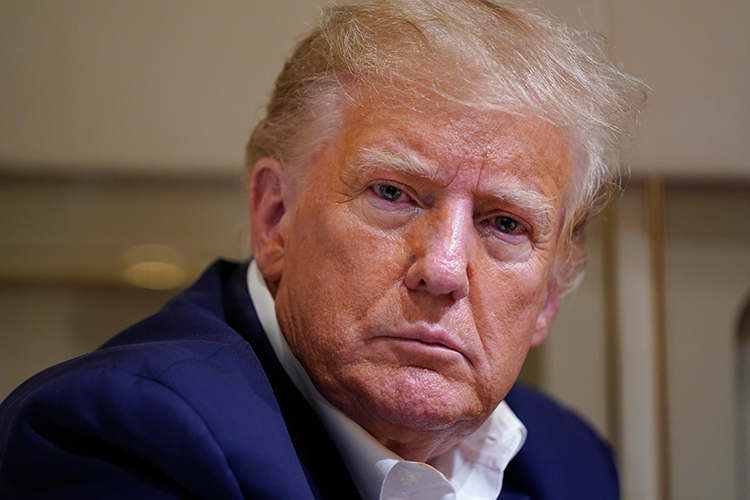Would Trump have immunity if he ordered opponent’s assassination? Possibly, his lawyer tells appeals court

A lawyer for former President Donald Trump told a federal appeals court Tuesday that Trump has immunity from prosecution for any official acts as president, unless he is impeached and then convicted by the U.S. Senate for the crime. Photo by Evan Vucci/The Associated Press.
A lawyer for former President Donald Trump told a federal appeals court Tuesday that Trump has immunity from prosecution for any official acts as president, unless he is impeached and then convicted by the U.S. Senate for the crime.
In arguments before the U.S. Court of Appeals for the District of Columbia Circuit, Trump lawyer D. John Sauer at first waffled when asked whether Trump could have immunity if he ordered SEAL Team 6 to assassinate a political rival. That’s an official act, an order to SEAL Team 6, said Judge Florence Y. Pan in audio posted by the Washington Post.
Sauer said a president would “speedily be” impeached and convicted in that case. As Sauer cited precedent, Pan insisted that she had asked a yes or no question. If a president wasn’t impeached and convicted, Pan asked, would a president be subject to criminal prosecution if he ordered SEAL Team 6 to carry out the assassination?
“My answer is qualified yes. There is a political process that would have to occur under the structure of our Constitution, which would require impeachment and conviction by the Senate in these exceptional cases,” Sauer answered.
Headlines by the Washington Post, Reuters and the New York Times said judges on the D.C. Circuit panel seemed “skeptical” of the immunity argument, while Politico said the claim got a “frosty reception.” The immunity claim was argued in Trump’s prosecution for trying to overturn the 2020 election.
Comments by the judges suggested other avenues for a ruling. Judge Karen LeCraft Henderson, for example, said precedent allowed prosecution of officials when they fail to abide by legally mandated duties, Law360 reports. One of those duties, Henderson said, is a president’s obligation to uphold the law under the take care clause.
“I think it’s paradoxical to say that his constitutional duty to take care that the laws be faithfully executed allows him to violate criminal law,” Henderson said.
Panel members also questioned whether they could rule on the immunity claim at this stage of the proceedings. Precedent suggests that the immunity issue can’t be appealed before resolution of the case, unless the immunity claim rests on an “explicit statutory or constitutional guarantee that trial will not occur,” according to Law360.
See also:
“Trump’s claim of absolute immunity isn’t supported by Supreme Court precedent”



